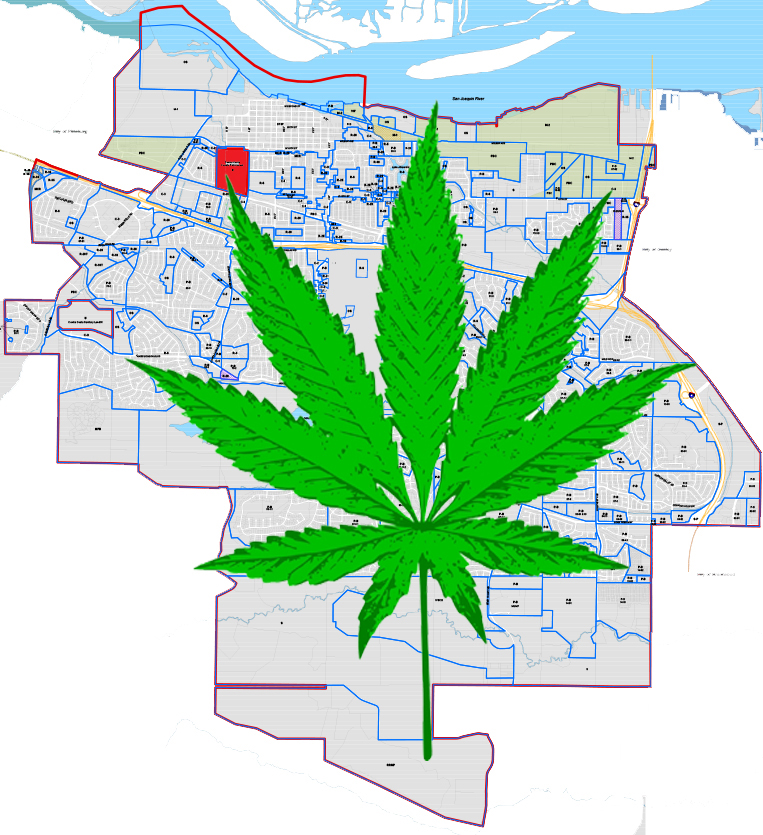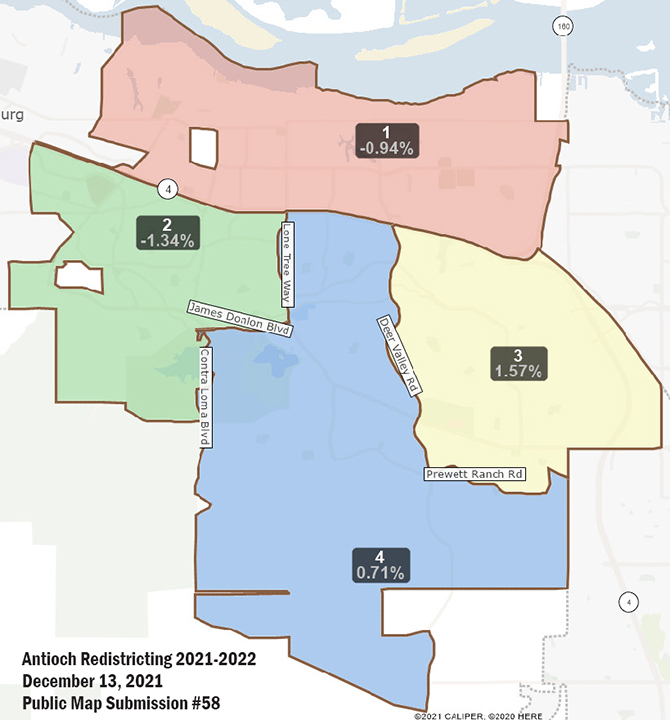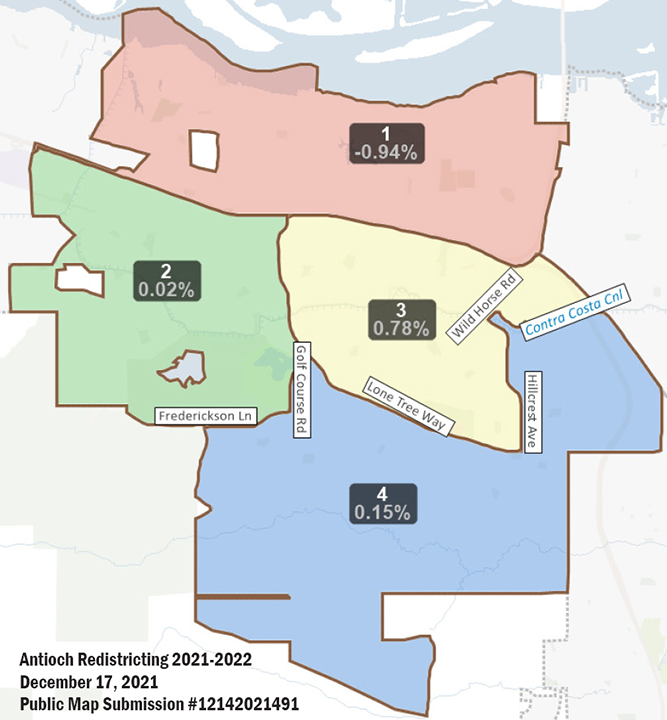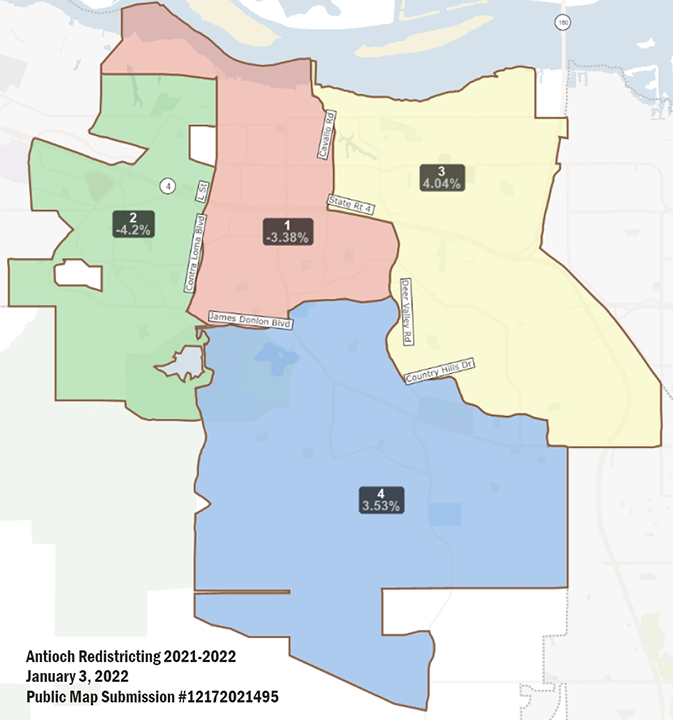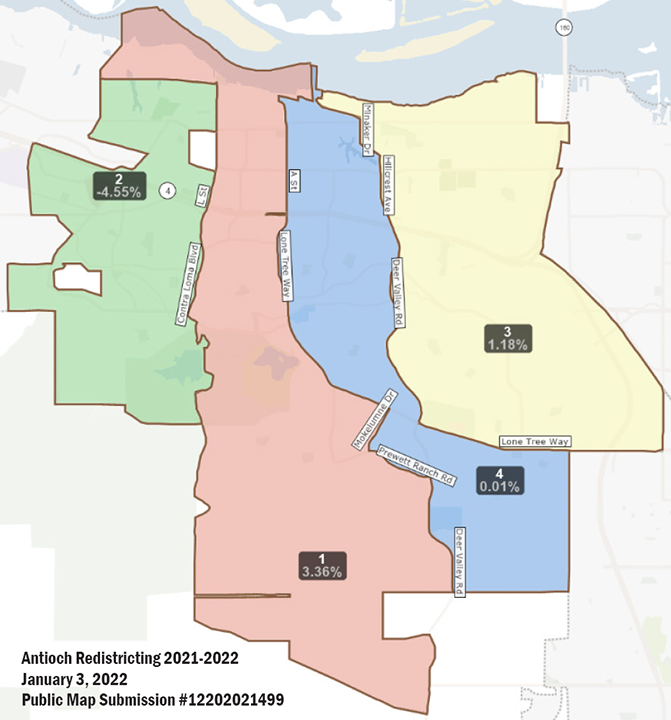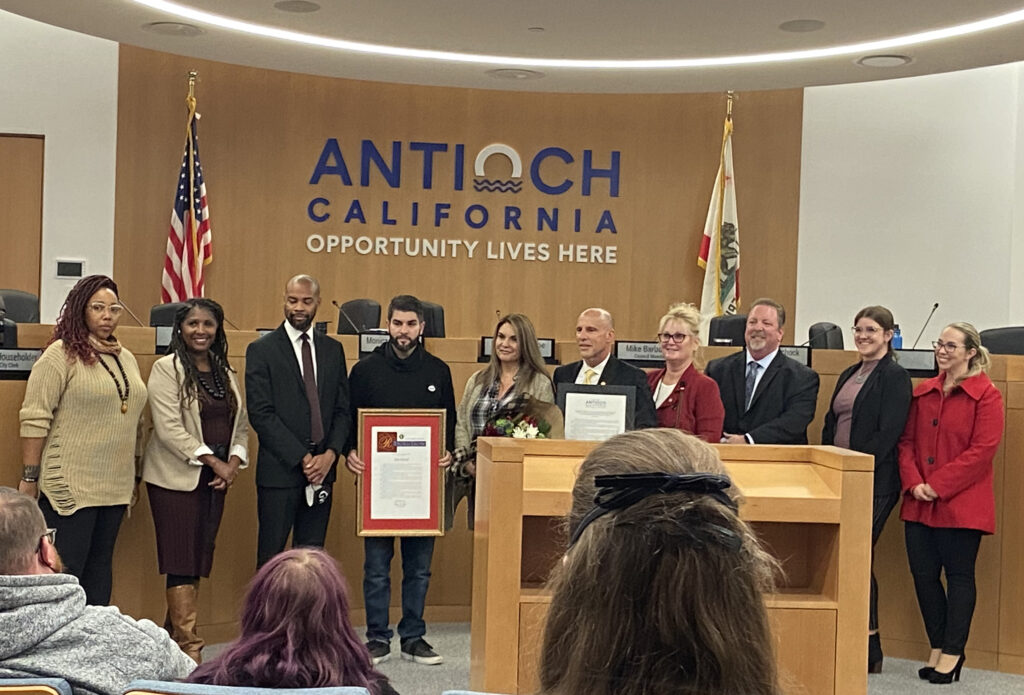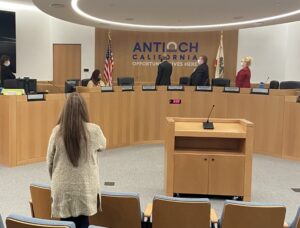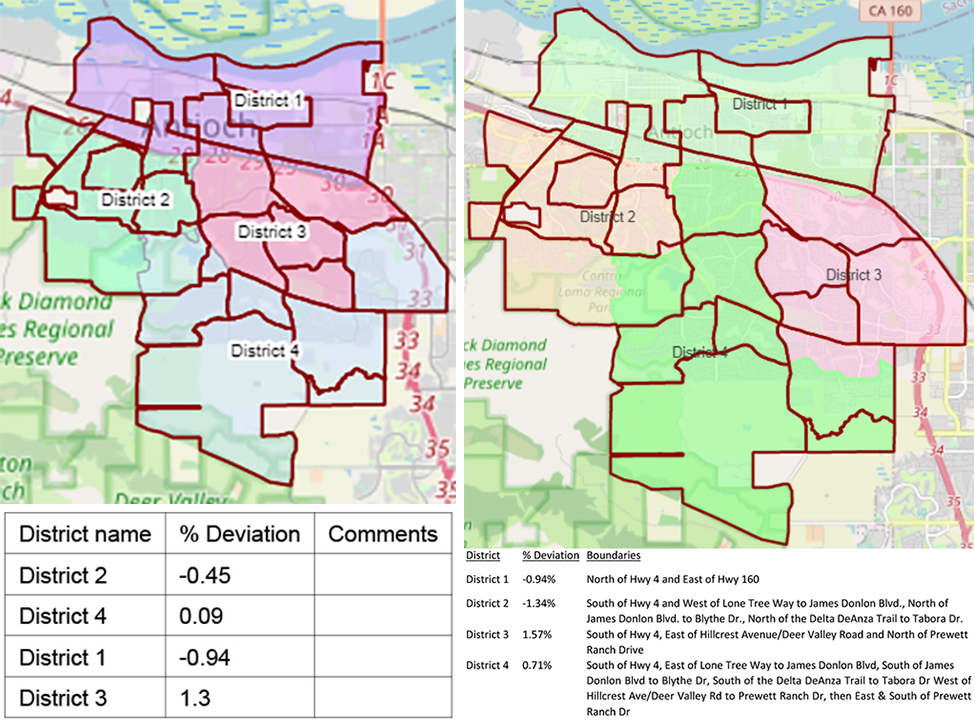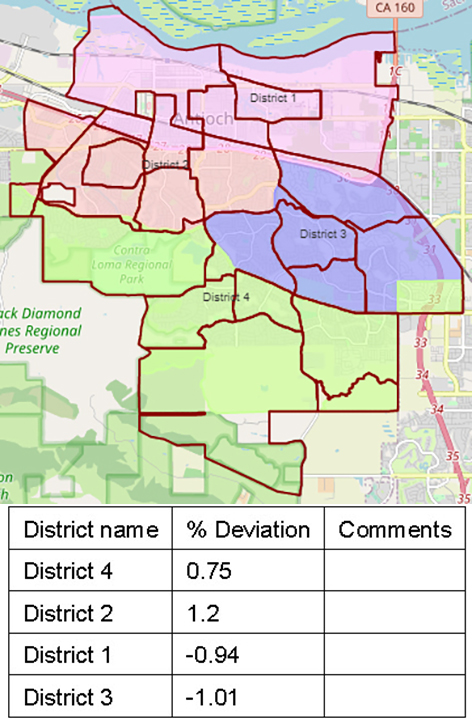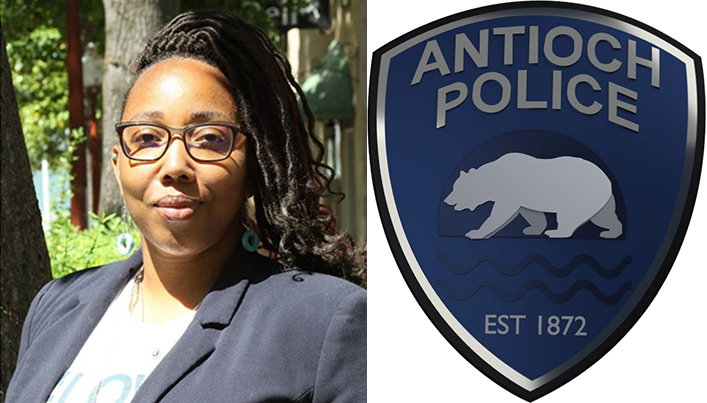Started Monday Dec. 13 mayor says; council members informed by email same day, not told what criteria was used nor provided with details to make the decision themselves about Cornelius “Con” Johnson
“It should not be up to the staff to make a determination of whether someone passed or failed…All of this should be…shared with the city council…then be up to the city council to determine whether the results meet their standards for selecting a city manager.” – Martha Perego, Director of Member Services and Ethics, International City/County Management Association
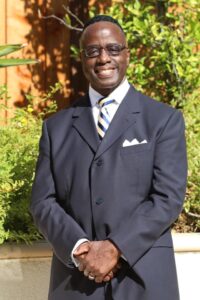
Cornelius “Con” Johnson. Source: Mayor Lamar Thorpe’s Facebook page.
By Allen Payton
In a breach of protocol and mishandling of proper procedure, City of Antioch staff, including at least Administrative Services Director Nickie Mastay, unilaterally determined new Interim City Manager Cornelius “Con” Johnson successfully passed the background check she conducted. In her position, which is essentially in charge of human resources, Mastay is one of the department heads who answers directly to the city manager. Johnson has been granted full authority as city manager to hire and fire any and all department heads, which includes Mastay, the chief of police, and others. (See related article)
According to Martha Perego, Director of Member Services and Ethics for the International City/County Management Association (ICMA), it’s the city council’s responsibility to determine if a candidate for city manager passed or failed the background check, not city staff.
Without fanfare or major public announcement, Johnson started in his position as interim city manager on Monday, Dec. 13. The public was not made aware of that fact until the end of the council meeting on Tuesday night, Dec. 14, when Mayor Lamar Thorpe made a rather casual but surprising comment welcoming Johnson, who the mayor said had started in his new position the day before. That answered the question for some members of the public in attendance for the council meeting why Johnson was included in the photos for outgoing City Manager Ron Bernal.
Mayor, Two Council Members, Staff Refuse to Answer Questions
On Wednesday, Dec. 15, questions were sent to Mastay, City Attorney Thomas L. Smith, and all five council members asking about Johnson starting that Monday. They were asked, “how is that possible if the background check being conducted by Nickie Mastay isn’t yet completed? If it is, when was it completed? If Con passed it, who determined that? Did the council members receive a copy of a report on his background check?”
The staff and council members were also asked, “isn’t it the council’s responsibility to review the findings from the background check and then make the determination if he successfully passed it and vote on it during closed session which would then be reported out to the public how each council member voted? If it was Nickie who determined that, how could she? Who gave or what gives her the authority to do so? Doesn’t she have a clear conflict of interest since Con will be her new boss and can fire and replace her with his full authority as city manager granted to him by the city council? Wouldn’t she pass him knowing there are three votes on the council to hire him? Or was it Thomas who determined Con successfully passed the background check? If so, how can an equal colleague, both of whom are hired by the council, be the one to make such a subjective determination?”
Since neither Smith nor Mastay responded to previous questions to them of what would cause someone to fail a background check, additional questions were posed to them and the council members. They were asked, “what are the determining factors that were considered, specifically for an interim city manager candidate? Is lying on his resume and inflating credentials grounds for failing the background check? Shouldn’t that be the criteria, when conducting background checks of anyone who wants to work for the City of Antioch?”
Is financial experience a determining factor? While I didn’t write about it (previously), based on the information I’ve received from an Antioch resident who conducted his own background check on Con, it shows he has two bankruptcies and three real estate foreclosures in his past. Were you aware of that? If so, were those facts considered for someone being hired for the top position of running an operation with a $259 million annual budget?”
Ogorchock, Barbanica Respond But Can’t Answer Most Questions
According to District 3 Councilwoman Lori Ogorchock, council members received an email on Monday morning, Dec. 8 informing them that Johnson had passed the background check.
“I received an email on Monday morning stating that he had passed his background and they would be doing his on-boarding,” she said.” That’s all I got. That was it.”
Asked if she had asked city staff about the process and why the council members weren’t the ones to determine if Johnson had passed, Ogorchock said, “I called Nickie (Mastay) and I’m waiting for a response back. I didn’t get a response, yesterday, the day before or today.”
“I’m trying to get answers to questions people are asking me,” she continued. “I also don’t know why there hasn’t been a press release on it, either.”
District 2 Councilman Mike Barbanica reiterated what his colleague said. In response to the Herald’s questions, he wrote, “We received an email Monday morning 8:29 AM (the entire council) stating that he had passed his background and was onboarding. I did not see any documents of the background.”
Asked about the background check, he said, “we were told human resources was doing it. I spoke to Ron about it after the council meeting in which the council voted 3-2 to hire Johnson, and he said the background check would be conducted and reviewed by human resources.”
Asked, again who determined Johnson had passed the background check, Barbanica said, “I don’t know if the mayor reviewed it. I didn’t review it.”
On Monday, Jan. 10, asked if she had heard back from Mastay, Ogorchock said, “She said she was going to reach out to you. I believe she hired an outside firm to do the background check. I don’t know.”
Questions on Process for Hiring Interim or Permanent City Manager to Johnson, Assistant City Manager Go Unanswered
Unless the council hires Johnson, Assistant City Manager Rosanna Bayon-Moore, or someone else on city staff, to be the permanent city manager, they will have to go through the same process, again later this year. In an attempt to determine what process was followed, this time and what is the proper process for dealing with the background check of a city manager candidate, the following, additional questions were sent to the same individuals, as well as Johnson and Bayon-Moore early Thursday afternoon, Dec. 16: “Was the council provided with a copy of Mr. Johnson’s complete background check? When and how were they informed that he had successfully passed it? Who determined that he passed it? If it wasn’t the council members, why wasn’t it? What were the criteria upon which that determination was made for the hiring of Mr. Johnson and/or for any city manager or city attorney candidate?”
Another attempt to reach Mastay by phone made on Monday morning, Jan. 10 was unsuccessful.
Questions for International City/County Management Association
An effort to reach someone at ICMA to answer questions regarding the proper procedure for hiring and conducting the background check of an interim or permanent city manager candidate, was unsuccessful between Dec. 15 and 31.
Those questions were sent via email on Friday, Jan. 7 to Ethics Director Perego. She was also asked who should determine if the candidate has successfully passed the background check and if it is a conflict of interest for a department head who answers directly to the city manager to make that determination. Perego was also asked shouldn’t it be the city council’s decision to make that determination based on the background information gathered by a city’s human resources department and provided to the council members. Finally, she was asked what is the criteria that a city council should use on which to base the determination if the candidate for city manager has passed or failed the background check.
Council, City Staff Mishandle Hiring Process, Background Check
In response, Perego of the ICMA, responded Monday morning, Jan. 10 with the following:
“One of the benefits of using an outside firm to assist in the recruitment of a city manager is that they handle vetting of the candidates. You avoid the potentially awkward situation where a staff member who ultimately will report to the city manager may have weighed in on the candidates, even if it is just providing basic information. Or learns something in the course of the process that is potentially embarrassing or questionable about their future boss. Hopefully, they would be professional about the matter. But that is why independence and objectivity that an outside firm brings, even from the appearance perspective, can be very beneficial.
Where the city relies on the HR team to manage the recruitment, they will be involved in the background check. They should be clear with the city council in advance about what data points they are checking and then report the factual results of that review to the city council. It should not be up to the staff to make a determination of whether someone passed or failed. There should be an initial background check of applications who have been determined to meet the qualifications to determine who will move on to the next round, i.e. confirm educational credentials, residency, online reputation, related issues, etc. That should be followed up with a more in-depth background check that includes criminal records, lawsuits, bankruptcy, etc. When the outside firms are involved, they typically will ask early on whether there is anything in the candidate’s background that the potential employer should know about. They use that info when conducting the background check to confirm whether the candidate was forthcoming and truthful.
All of this should be done confidentially and shared with the city council in a confidential manner (as long as that is permitted by law). It should then be up to the city council to determine whether the results meet their standards for selecting a city manager. They may also want to talk with the candidate about the results to acquire some context. For example, perhaps the candidate defaulted on a home mortgage a decade ago. Depending on the circumstances, that in and of itself may not be a disqualifying event. But a recent DUI or arrest for assault, especially if it was not disclosed upfront during the initial discussions, is different and may be an automatic disqualifier.”
Perego’s Response and Questions Again Sent to Council, Staff
Perego’s response and questions about the process were again sent to Mastay, Attorney Smith, Johnson, the mayor and council members, Monday morning at 10:02 AM. They were asked: “Who conducted Mr. Johnson’s background check? Was it Nickie Mastay or did she hire an outside firm? If so, what is the name of the firm who conducted it? How much did the City pay them? Did the council provide the data points to staff of what they wanted in the background check? What were the determining factors upon which Mr. Johnson could pass or fail? Were the results of the background check presented to any or all council members? Who made the determination that Mr. Johnson passed his background check and upon what basis? Was it the mayor, council, Nickie Mastay or someone else on city staff?
In addition, Smith was specifically asked “Is that permitted by law for the council to do in California?” regarding the section in which Perego wrote, “All of this should be done confidentially and shared with the city council in a confidential manner (as long as that is permitted by law).”
They were each given until 12:30 p.m., Monday, Jan. 10 to respond.
No responses had been received from any staff member, the mayor or other council members, as of publication time at 1:00 p.m.
Bernal Welcomes Johnson, Misrepresents Title, Position With SFPD
Other than the mayor’s brief announcement, the only other mention of Johnson becoming interim city manager was in retiring city manager Ron Bernal’s final Bi-Weekly Update issued on Dec. 28, in which he also misrepresented Johnson’s last title and position with the San Francisco Police Department. As has been previously reported, although Johnson served in his final two years as an acting captain and retired and his pension is being paid as a Lieutenant III, his resume only shows the title of captain, and has been introduced to the public as a retired captain since late 2020. Johnson still has not explained the discrepancy. (See related articles here and here)
Bernal wrote, “WELCOME CON! I am very pleased to introduce our new Interim City Manager, Cornelius Johnson. Mr. Johnson comes to us with 17 years of managerial experience with the City and County of San Francisco, most recently as a captain in the San Francisco Police Department’s Field Operations Bureau. Throughout his career, Con has devoted his career to establishing strong bonds between his agencies and the residents he has served. Please join me in welcoming Con to our Antioch family.”
As of Monday, Jan. 10 the Administration Department page on the City’s website still shows Bernal is city manager.
Johnson’s first council meeting as interim city manager is tomorrow night, Tuesday, Jan. 11.
